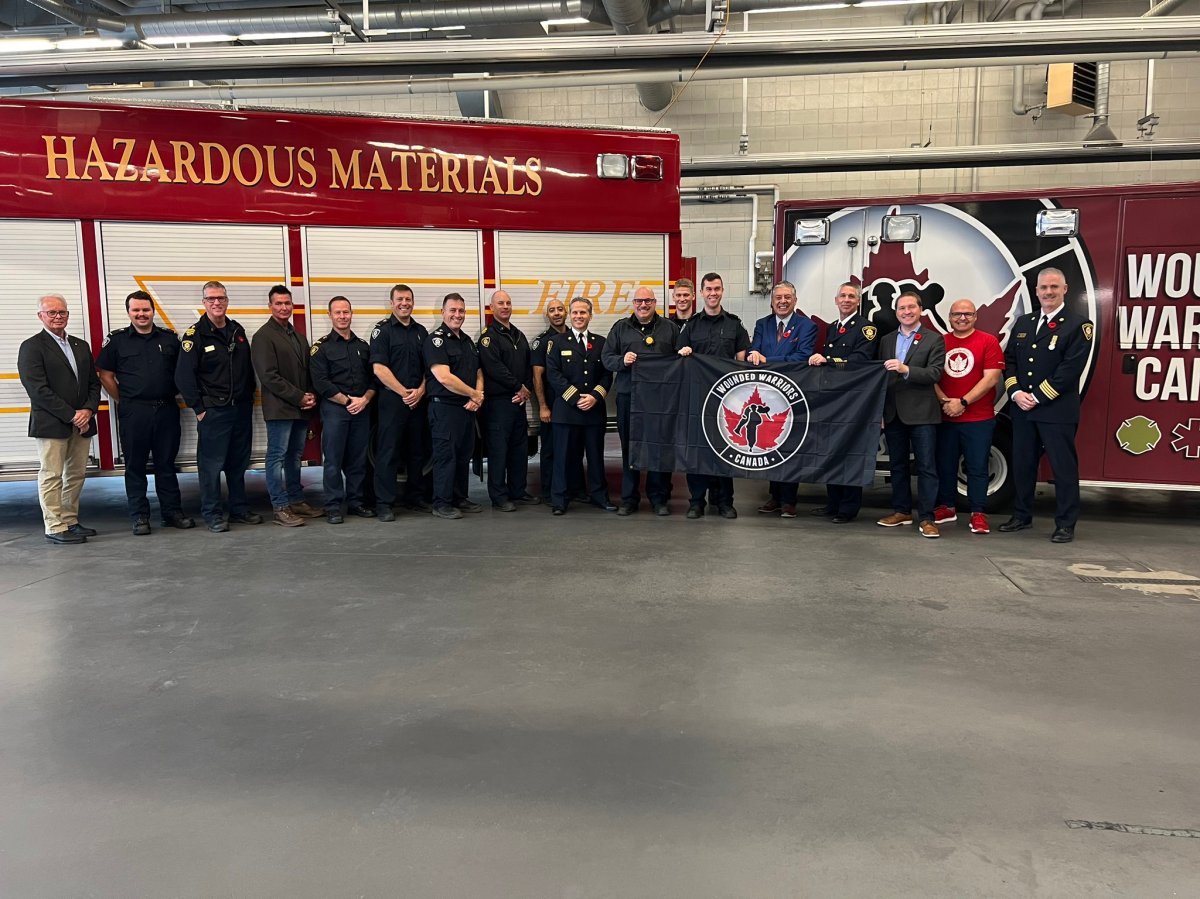The London Fire Department has announced it will be partnering with Wounded Warriors Canada to support first responders with their mental health.

The partnership will allow members of the department and their families to access additional mental health assistance and supports.
Gary Bridge, assistant deputy chief, said that the trauma firefighters are exposed to on a daily basis can deeply impact both their lives and their family’s lives.
“Research indicates that between seven and 30 per cent of first responders are impacted by PTSD,” he said. “We recognize we as an organization need to do more to educate, reduce stigma, and develop resiliency.”
The partnership between the two began when the LFD noticed a number of firefighters impacted by trauma, and reached out to Wounded Warriors Canada to see if a partnership could be formed.
As part of the partnership, the LFD will pool their resources with Wounded Warriors Canada, while also identifying or referring members in need of mental health supports to the programs that will be offered.
Bridge said a big part of the partnership is just letting people know that it’s okay to have conversations about mental health.

Get breaking National news
“What you’re seeing is not what a normal person sees, and therefore we want to make sure that people are coping with those situations. Through Wounded Warriors, we can ensure that the supports are there when they need them.”
- Plane with ‘suspected landing gear issue’ moved after rough Halifax landing
- Norad paying ‘full attention’ to Chinese-Russian air co-operation
- ‘Let’s not panic’: Canada picks up the pieces after shocking loss to Latvia at world juniors
- How modern diplomacy is — and isn’t — like how it’s shown on ‘The Diplomat’
Wounded Warriors Canada is a nationally-recognized mental health service provider that focuses on veterans, first responders and health-care workers. To date, Wounded Warriors Canada has partnered with over 150 services across the country.
The service focuses on providing recovery for individuals and their families dealing with post-traumatic stress and training resiliency in workplaces and at home.
“The more we get that stuff upstream, the more people are aware, then they know what’s going on,” said Phil Ralph, director of health services for Wounded Warriors Canada.
“They then can know when they need to ask for help, know how to support members better and know what’s appropriate. And it just makes for a healthier workplace.”
Ralph says that other services in the province have already adopted parts of the upstream training, which teaches first responders how to properly cope with trauma and injuries and when it’s appropriate to seek assistance.
Wounded Warriors Canada and the LFD will also be offering supports to the families of first responders.
“It’s important for family members to understand how to support a first responder,” Bridge said. “They can now understand how we can support a first responder, so it doesn’t result in marriage breakdowns, it doesn’t result in challenges at home.”
Corey Thompson, vice-president of the London Professional Firefighters Association (LPFFA), says this is just another tool in the toolbox for firefighters.
“There’s a history of stigma associated with post traumatic stress disorder. And what we’re trying to do is let people know that it’s okay,” he said.
“We want people to know where they can find (mental health supports), and how to get access to it, how to make themselves stronger, and build resiliency to be able to handle and cope with these exposures and experiences.”
More information about Wounded Warriors Canada can be found on their website.









Comments